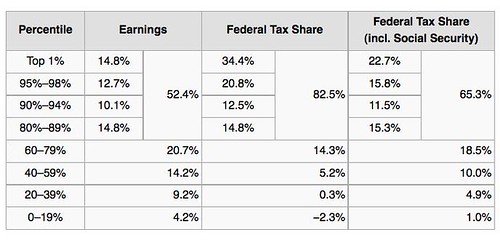Wingnuts from the right have trolled my thread, its time they need a reality check. How can any rightie claim that its unfair that their taxes from their hard earned work is being unfairly given to the poor whom they presume to not as hard working and yet turn a blind eye to the rich who shift a larger part of the tax burden onto the middle class[which constitutes the majority of Americans] when they use loopholes?
You presume an awful lot Charlie. The Right or Conservative are in every tax bracket. It is the Government that make the rules, not business. The loop holes are under Government control. Stop confusing the roles, put Your faith back in God where it belongs, Bass Man, and stop confusing Government Mandates with "On High".
The government and congress need to shut those loopholes and make the rich own up to their part of the tax burden instead of having it shifted on the lower and middle classes. Contrary to popular belief and misperceptions, the money of the rich and middle class is *NOT* being given to lazy people as handouts, the money of the rich mostly stays with them and the money of the middle and lower working classes are mostly used to level the tax burden that the rich is supposed to take but get out of. Do you think its fair for you to burden somebody else's taxes?
Charlie, Who's paying for Their Campaigns? Who's striking deals?



